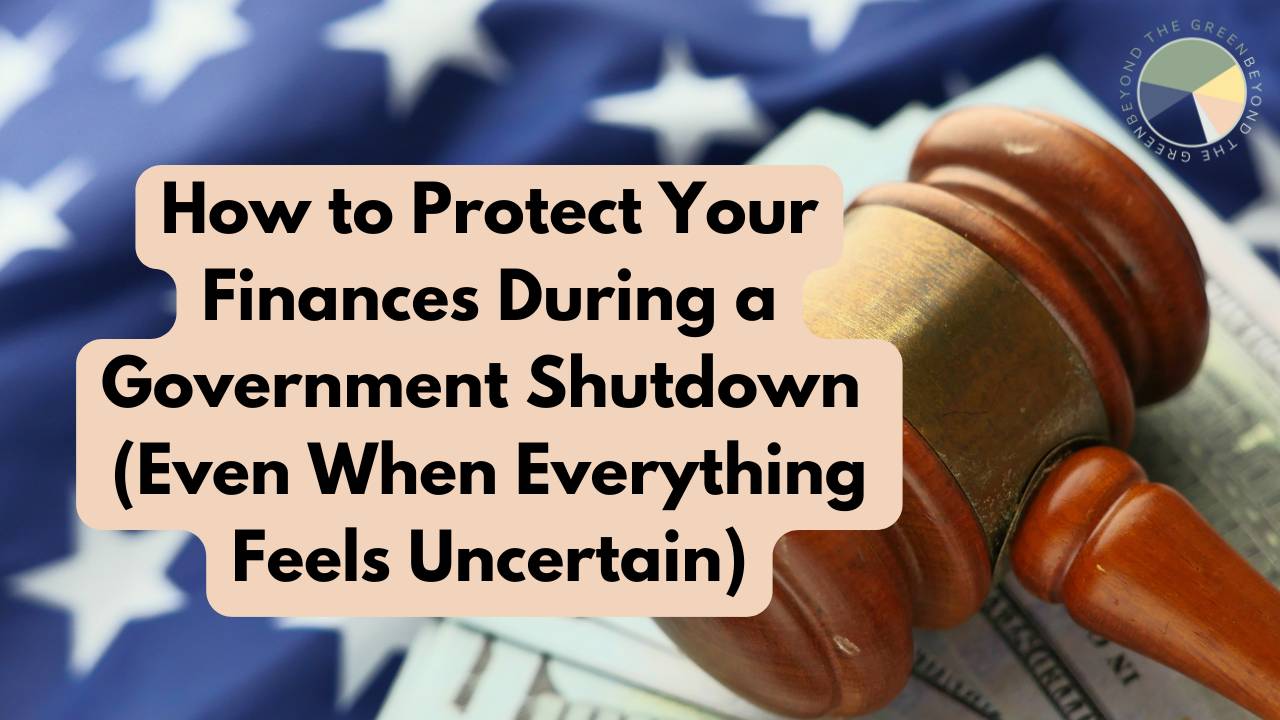How to Protect Your Finances During a Government Shutdown (Even When Everything Feels Uncertain)
Oct 02, 2025
Government Shutdown: How Will This Affect Your Money?
As of October 1, 2025, America’s federal government has entered a shutdown after a budget impasse. Hundreds of thousands of workers are furloughed, paychecks are frozen, and the ripple effects are already being felt across industries. For many, it’s not a theoretical headline: it’s a financial emergency in motion.
Here’s what I want for all of you: that you emerge from this shutdown not stressed, but stronger; with reserves intact, decisions rooted in strategy (not panic), and multiple income paths standing ready.
Let’s dive into my tried and true playbook for navigating these turbulent days:
-
Budget ruthlessly
Start here. No, really. Before you cut or save, you need to see your numbers clearly. List non-negotiables (rent, utilities, groceries), recurring extras (subscriptions, memberships), and flex categories (shopping, dining out, travel). If income is reduced, the budget shows you whether you have a spending problem or an income problem. Clarity is step one.
-
Build (or protect) your emergency fund
Once your essentials are mapped, channel every extra dollar into cash reserves. Treat it as insulation: the thicker the buffer, the safer you’ll feel if paychecks stop. Even if you only add a few hundred dollars, that cushion buys you time and gives you security.
-
Consider a side hustle
If your work depends on government funding (directly or indirectly) diversification is key. Freelance projects, contract work, tutoring, rideshare, even monetizing hobbies can soften the blow. This isn’t about shame, it’s about strategy.
-
Don’t panic-sell your investments
Shutdowns are stressful, but they’re not new. Historically, markets wobble, then recover. Selling investments because of fear locks in losses and undermines long-term plans. Stay the course unless your goals or life circumstances have genuinely changed.
-
If income drops, find immediate replacements
Don’t wait it out in silence. File for unemployment if eligible, lean on community resources, and communicate with creditors early about hardship programs. Even temporary income (consulting, gig work, part-time roles) keeps cash flowing and stress lower.
-
Avoid desperate debt moves
This is not the time for 401(k) withdrawals, HELOCs, or risky loans. And while paying off debt matters, don’t go “all in” right now. Instead, shift high-interest debt to 0% promos where possible, keep minimums current, and protect your cash flow.
A shutdown is a financial stress test; not just for government, but for every family. But it doesn’t have to break you, this I know. By staying consistent with budgeting, expanding income sources, and holding steady in your long-term strategy, you will emerge more resilient than before.
Next Step: Download our Government Shutdown Financial Toolkit by clicking the button below!
Stay grounded. We’ll get through this — together.
Beyond The Basics: Our Glossary Of Financial Terms
We define the lingo you'll need to become a finance expert!
We hate SPAM. We will never sell your information, for any reason.




